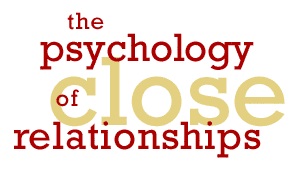

|


|
|
|
Ann Weber, Ph.D.
These three vignettes about very different kinds of relationships reveal a shared truth: Relationships are important to us, they matter. Whether it's a new friendship or an old dispute, dealing with those close to us requires energy and resources. Casual exchanges about common interests can develop and blossom into deep and lasting friendships. Bonds and breaks between family members create strong feelings and shape our lives. Romantic fantasies can give us hope and endurance, but may become part of a pattern of bad choices.
"People who need people are the luckiest people in the world," or so the song goes. Lucky or not, recognizing the need for people -- or a particular person -- in your life is certainly the first step to having that need fulfilled -- but it is only a first step. What exactly do you do to satisfy that need? Luck might help -- but skills are a better bet. To rephrase the proverb, sometimes opportunity knocks, but other times, you have to go out and drag it in off the street! Don't wait to get "lucky" -- instead, use your skills at forming closeness with others. Unfortunately, relationship skills don't come naturally. As much as we need relationships in our lives, we are not automatically good at initiating or keeping relationships with others. For some of us, our first instinct may be to push those we most want to be close to away. Others may press for closeness too early or so much that their possessive or suffocating desire drives their loved one away. Our first close relationships aren't even a matter of choice: born into a family, you must learn to adapt to those individuals and they to you. You can pick your friends, goes the saying, but you can't pick your family. This is actually a relief: family members may not choose each other, but they don't (usually) reject each other, either. Relationships of choice, such as friendship and marriage, require that we make our needs known, apply our skills and take some risks. How good are you at relating? Intellectual ability is assessed with an I.Q. (intelligence quotient) test. Social skills matter as much as intelligence in our lives, perhaps more. And like any set of skills, relationship skills can be learned and sharpened. This course is designed to help that. If we could measure your Relating Quotient, what would it reveal? Consider just a few social skills as a start: rate your ability to undertake each of the following on a five-point scale from "very difficult for me" (1) to "very easy for me" (5): |